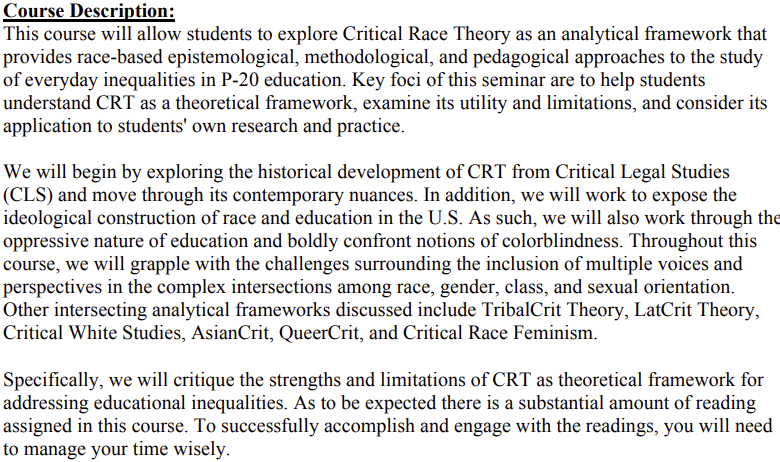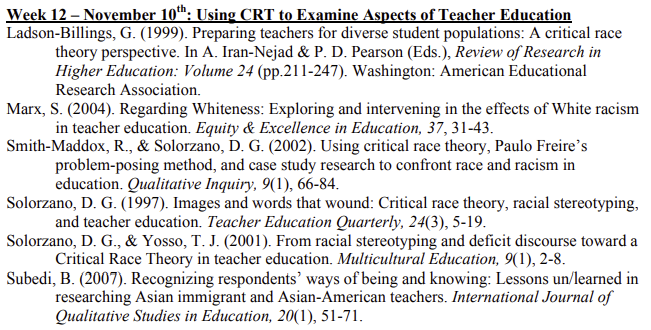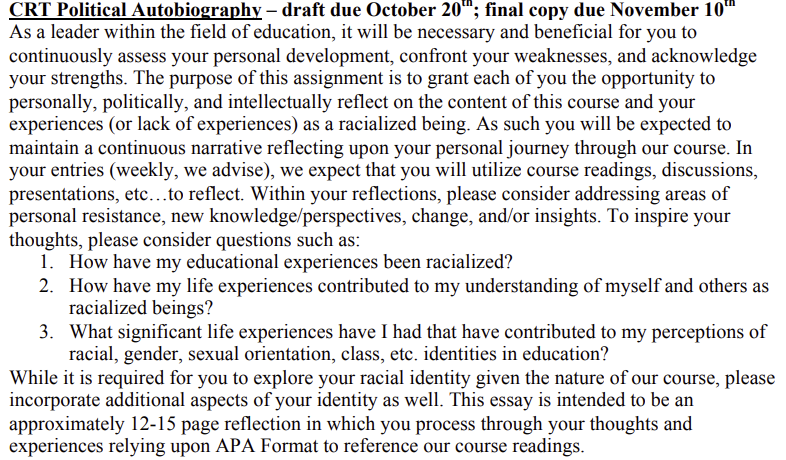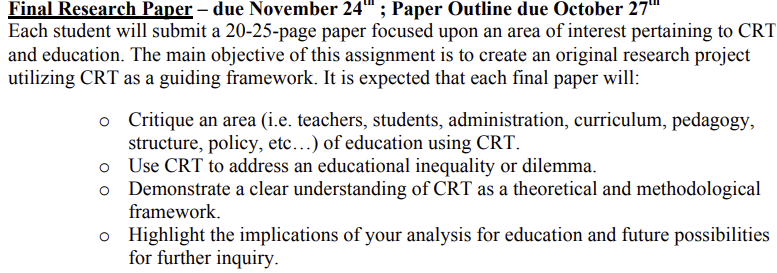Michigan State University (CorruptED)
Incidents
The Michigan State University’s College of Education features courses that include topics such as critical race theory, tenets of queer theory, white privilege, and whiteness. Texts include Paulo Freire’s Pedagogy of the Oppressed and Delgado and Stefancic’s Critical race theory: An introduction.
The College of Education’s teacher preparation program “emphasizes the preparation of justice-oriented professionals who are ready to teach on Day 1.” The college is guided by its “belief that education empowers adolescents to make the world a more just place” and that its program will start with “social justice coursework that focus on supporting all learners to be critical and creative actors.”

Required professional courses include “Social Foundations of Justice and Equity in Education,” “Pedagogy and Politics of Justice and Equity in Education,” and “Justice and Equity in Seminar.”

COURSES
TE 901: Education Versus Schooling: Core Dilemmas and Perspectives
The course TE 901: Education Versus Schooling: Core Dilemmas and Perspectives includes topics such as decolonization and whiteness. Texts include Paulo Freire’s Pedagogy of the Oppressed.

TE 962: Teachers and Teaching in Urban Contexts
The course TE 962: Teachers and Teaching in Urban Contexts includes tenets of critical race theory and reading Paulo Freire’s Pedagogy of the Oppressed.
The course description states that it is “designed to explore how individuals participating in the profession of teaching in ‘urban’ communities have responded over time to ever-changing definitions of school ‘success’ and ‘failure’ in the United States.”

TE 982: Examining Critical Race Theory in Education
The course titled TE 982: Examining Critical Race Theory in Education features the topics of critical pedagogy, critical race theory, “color-blind racism,” tenets of queer theory, white privilege, and whiteness. Texts include Delgado and Stefancic’s Critical race theory: An introduction.
The course description states that students will “explore Critical Race Theory as an analytical framework that provides race-based…pedagogical approaches to the study of everyday inequalities in P-20 education.”
The class will “expose the ideological construction of race and education in the U.S.” and “work through the oppressive nature of education.” Other topics include the “complex intersections among race, gender, class and sexual orientation” as well as “TribalCrit Theory, LatCrit Theory, Critical White Studies, AsianCrit, QueerCrit, and Critical Race Feminism.”

Course Objectives include:
- We will explore how racial inequities are produced, reproduced, and maintained within
social institutions of education. - We will strive to create affirming spaces for counter discourses that refute ideological constructions of “truth” and “reality.”
- We will work to understand and value the similarities and differences among the
experiences of people with different racial backgrounds in P-20 education. - We will use CRT to inform our personal, social, political, and intellectual experiences as
racial beings. - We will engage in CRT with the end goals of heightened social consciousness and social
transformation.
TE 982 has modules dedicated to “CRT and Educational Policies;” “Critical Race Feminism
and Queer-Crit;” “CRT and Students of Color: Examining K-12 Education;” and “Using CRT to Examine Aspects of Teacher Education.” This module is specifically about incorporating CRT in teacher education and the classroom:

In one of the assignments, students are required to create a “CRT Political Autobiography.” The purpose of this assignment is for students to “personally, politically, and intellectually reflect on the content of this course and your experiences (or lack of experiences) as a racialized being.” Students are asked to consider the following questions in their reflections:
- How have my educational experiences been racialized?
- How have my life experiences contributed to my understanding of myself and others as
racialized beings? - What significant life experiences have I had that have contributed to my perceptions of
racial, gender, sexual orientation, class, etc. identities in education?

The final research paper is a 20-25 page “original research project utilizing CRT as a guiding framework” in regards to education. Each final paper must:
- Critique an area (i.e. teachers, students, administration, curriculum, pedagogy, structure, policy, etc…) of education using CRT.
- Use CRT to address an educational inequality or dilemma.
- Demonstrate a clear understanding of CRT as a theoretical and methodological framework.
- Highlight the implications of your analysis for education and future possibilities for further inquiry.

Stay Informed
